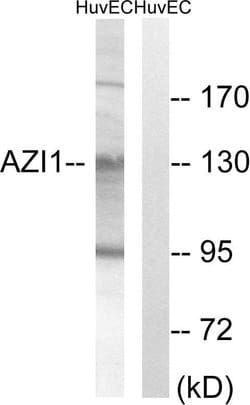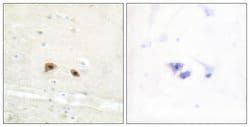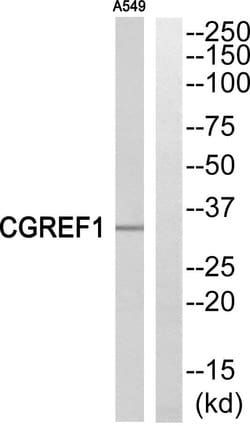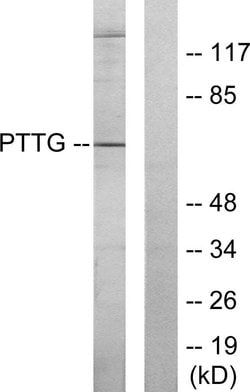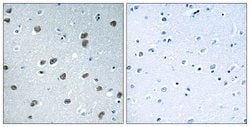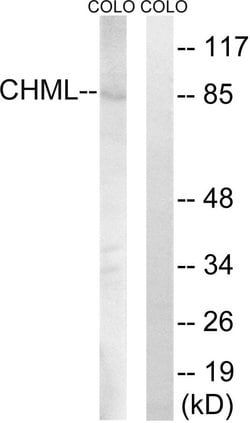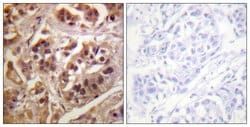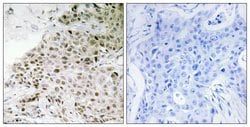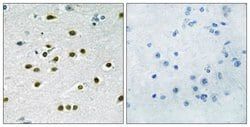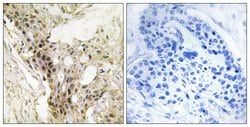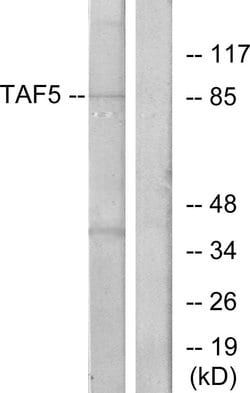KLF10/KLF11 Polyclonal Antibody, Invitrogen™
Manufacturer: Thermo Scientific
Select a Size
| Pack Size | SKU | Availability | Price |
|---|---|---|---|
| Each of 1 | PIPA538674-Each-of-1 | In Stock | ₹ 44,856.00 |
PIPA538674 - Each of 1
In Stock
Quantity
1
Base Price: ₹ 44,856.00
GST (18%): ₹ 8,074.08
Total Price: ₹ 52,930.08
Antigen
KLF10/KLF11
Classification
Polyclonal
Conjugate
Unconjugated
Gene
KLF10
Gene Alias
FKLF, FKLF1, MODY7, TIEG2, Tieg3, Krueppel-like factor 11, TGFB-inducible early growth response protein 2, TIEG-2, transforming growth factor-beta-inducible early growth response protein 2
Host Species
Rabbit
Purification Method
Antigen affinity chromatography
Regulatory Status
RUO
Gene ID (Entrez)
194655, 21847, 313994, 7071, 81813, 8462
Content And Storage
-20°C
Form
Liquid
Applications
Immunohistochemistry (Paraffin)
Concentration
1 mg/mL
Formulation
Dulbecco′s PBS with 150mM NaCl, 50% glycerol and 0.02% sodium azide; pH 7.4
Gene Accession No.
O14901, Q13118, O89091, Q8K1S5, O08876
Gene Symbols
KLF10, KLF11
Immunogen
A synthetic peptide derived from the internal region of human KLF10/11
Quantity
100 μg
Primary or Secondary
Primary
Target Species
Human, Mouse, Rat
Product Type
Antibody
Isotype
IgG
Description
- KLF10 is a nuclear protein belonging to the Sp1 C2H2-type zinc-finger protein family with three C2H2-type zinc fingers
- KLF10 is a transcriptional repressor involved in the regulation of cell growth and inhibits cell growth
- It binds to the consensus sequence 5′-GGTGTG-3′ and is induced by TGF-beta thus playing a role in linking TGF-beta-mediated signaling cascades to the regulation of pancreatic epithelial cell growth
- KLF10 is involved in inducing and promoting apoptosis through the mitochondrial apoptotic pathway and may inhibit Smad7 expression in bronchial epithelial cells
- Ubiquitous expression of KLF10 is seen in most of the tissues
- Reports suggest that it may mediate up-regulation of TGFBI in VHL-deficient tumors and other cancers
- Over expression of KLF10 may be associated with renal clear cell carcinoma and other tumors
- KLF11 is a zinc finger transcription factor that binds to SP1-like sequences in epsilon- and gamma-globin gene promoters
- This binding inhibits cell growth and causes apoptosis
- Defects in this gene are a cause of maturity-onset diabetes of the young type 7 (MODY7)
- Three transcript variants encoding two different isoforms have been found for this gene.
